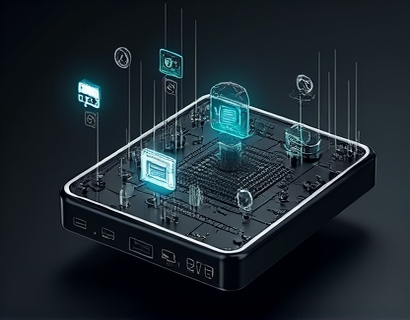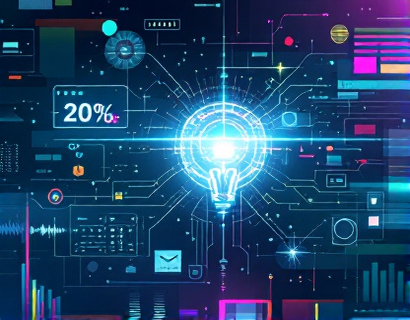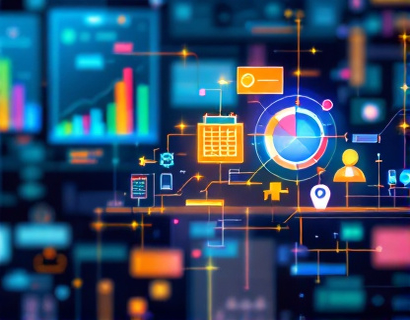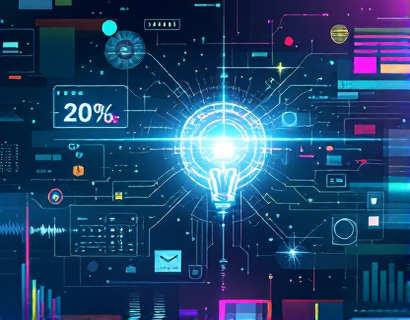Transforming Legal Decision-Making with AI-Powered Chat Interfaces
In the rapidly evolving landscape of legal services, the integration of Artificial Intelligence (AI) has opened new avenues for both legal professionals and individuals seeking assistance. An advanced AI chat interface stands at the forefront of this revolution, offering instant access to expert legal insights and knowledge. This technology not only streamlines the process of obtaining legal advice but also empowers users to make more informed and secure decisions.
Instant Access to Legal Expertise
The primary advantage of an AI-powered legal chat interface is the immediate access it provides to a wealth of legal knowledge. Users can engage in real-time conversations, asking questions about various legal topics, from contract law to intellectual property, and receive detailed responses from AI systems trained on extensive legal databases. This instant access eliminates the waiting times associated with traditional legal consultations, making legal advice more accessible and efficient.
Enhancing Legal Decision-Making
For both legal professionals and individuals, the ability to quickly access accurate legal information is invaluable. AI chat interfaces can analyze complex legal scenarios, provide relevant case law references, and outline potential outcomes, thereby enhancing the decision-making process. This capability is particularly beneficial for legal professionals who need to stay updated on the latest legal trends and precedents, ensuring their advice is always current and relevant.
User-Friendly and Secure Platform
The design of these AI chat interfaces prioritizes user experience and security. A seamless interface allows users to navigate through legal information effortlessly, with intuitive prompts guiding them to the most pertinent data. Security is paramount, with advanced encryption methods and strict data protection policies ensuring that sensitive legal inquiries and personal information are safeguarded against unauthorized access.
Advanced AI Technology
The AI systems powering these chat interfaces are sophisticated, employing natural language processing (NLP) and machine learning algorithms to understand and respond to user queries accurately. These technologies enable the AI to learn from each interaction, continuously improving its ability to provide relevant and precise legal insights. This adaptive learning process ensures that the information provided remains up-to-date and aligned with the latest legal developments.
Benefits for Legal Professionals
For legal professionals, AI chat interfaces serve as powerful tools to augment their practice. They can use these platforms to quickly research legal precedents, draft documents, and stay informed about changes in legislation. This not only enhances their efficiency but also allows them to focus more on client interaction and less on time-consuming research tasks. Additionally, AI can assist in identifying potential legal risks and suggesting strategies to mitigate them, thereby adding value to their services.
Empowering Individuals
Individuals seeking legal assistance benefit immensely from these AI chat interfaces. They can gain a better understanding of their legal rights and obligations, explore available legal options, and make informed decisions without the need for extensive legal knowledge. This democratization of legal information empowers users, making the legal system more accessible and less intimidating.
Legal Research Made Simple
One of the most significant advantages of AI-powered legal chat is the simplification of legal research. Users can input specific legal questions or scenarios, and the AI will sift through vast databases to provide relevant statutes, case laws, and legal commentaries. This capability saves time and reduces the complexity typically associated with legal research, making it more approachable for non-experts.
Industry-Specific Insights
The AI chat interface can offer industry-specific legal insights, which is particularly useful for businesses navigating the intricate web of regulations across different sectors. Whether it's understanding compliance requirements, intellectual property protection, or employment law, the AI can provide tailored information that addresses the unique legal challenges faced by various industries. This specialized knowledge helps businesses operate more smoothly and avoid potential legal pitfalls.
Contract Review and Drafting
Contract management is another area where AI chat interfaces excel. Users can upload contract documents and receive instant feedback on compliance, potential risks, and suggested improvements. The AI can also assist in drafting new contracts by providing templates and ensuring that all necessary clauses are included. This functionality not only saves time but also reduces the likelihood of legal errors, enhancing the overall quality of contractual agreements.
Continuous Legal Education
For both legal professionals and individuals, staying informed about legal developments is crucial. AI chat interfaces can serve as a continuous learning tool, providing updates on new laws, court decisions, and legal trends. Users can subscribe to specific legal areas of interest, receiving timely notifications and summaries of relevant developments. This keeps them well-informed and better prepared to handle legal matters.
Building Trust Through Transparency
Transparency is a cornerstone of trust in legal services. AI chat interfaces can enhance this by clearly outlining the sources of information and the methods used to derive responses. Users can understand the basis of the advice they receive, fostering a greater sense of confidence in the AI's recommendations. This transparency also helps in identifying any limitations of the AI, ensuring that users are aware when human legal expertise is necessary.
Challenges and Considerations
While AI-powered legal chat interfaces offer numerous benefits, there are challenges and considerations to address. One key issue is the accuracy and reliability of the AI's responses. Continuous refinement and updates to the AI's training data are essential to minimize errors and ensure that the information provided is accurate and up-to-date. Additionally, while AI can handle a wide range of legal queries, complex cases requiring nuanced judgment and ethical considerations still necessitate human legal expertise.
Integration with Existing Legal Systems
Integrating AI chat interfaces into existing legal systems and workflows is another consideration. Legal firms and organizations must ensure that these tools complement rather than replace traditional legal services. Training legal professionals to effectively use AI tools and incorporating them into standard practice can maximize their benefits while maintaining the high standards of legal service delivery.
Future Prospects
The future of AI in legal services is promising, with ongoing advancements in AI technology likely to enhance the capabilities of these chat interfaces further. Improvements in natural language understanding, emotional intelligence, and predictive analytics will make AI legal assistants even more effective and user-friendly. As the legal industry continues to embrace digital transformation, AI-powered chat interfaces will play an increasingly vital role in shaping the future of legal services.
In conclusion, AI-powered legal chat interfaces represent a significant leap forward in making legal information and services more accessible and efficient. By providing instant access to expert legal insights and knowledge, these tools empower both legal professionals and individuals to make informed decisions, ultimately transforming the way legal decision-making is approached. As the technology continues to evolve, its impact on the legal landscape will only grow, paving the way for a more informed and equitable legal system.










































